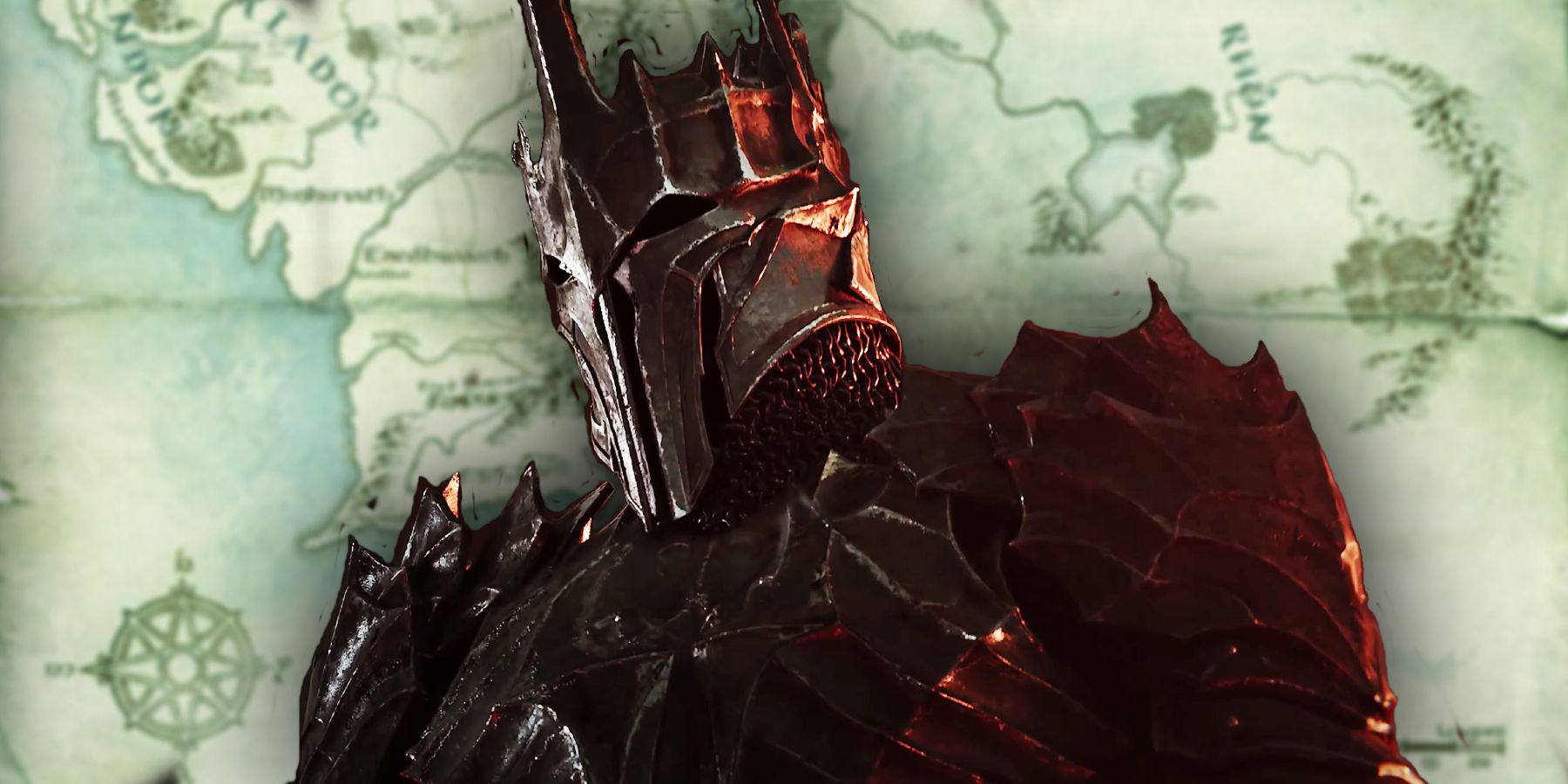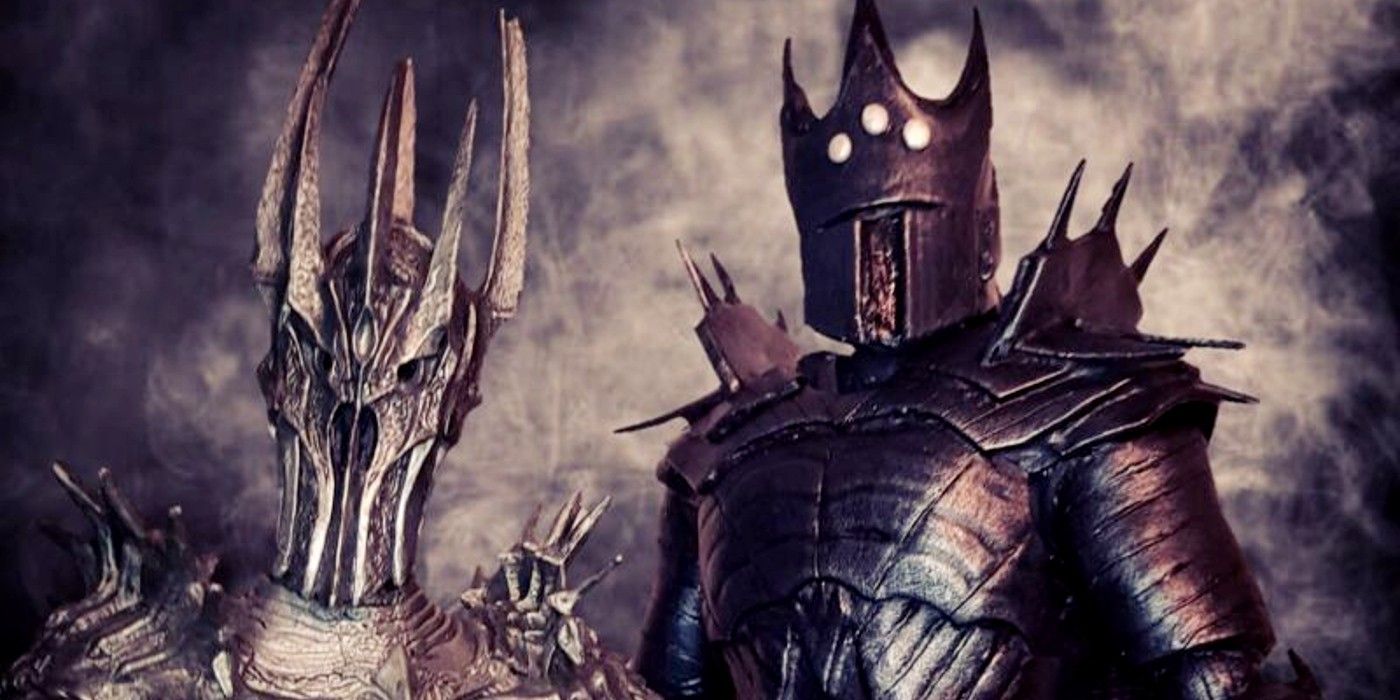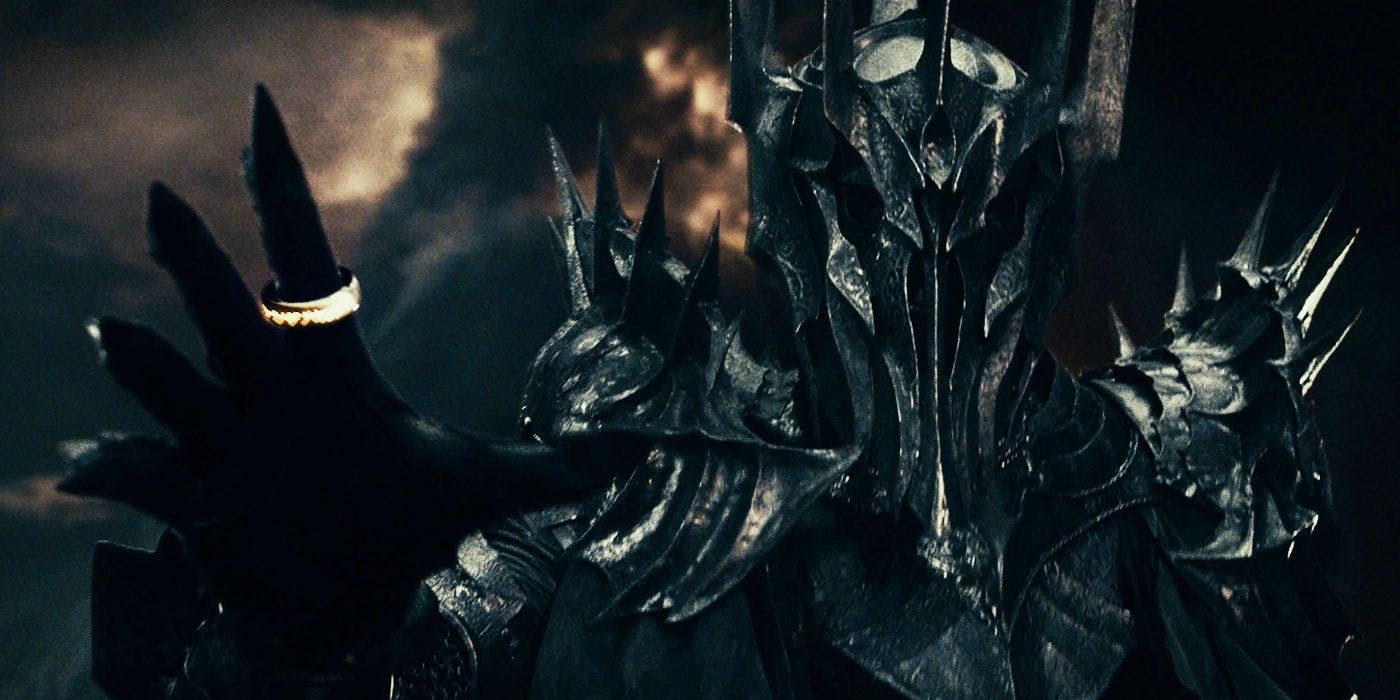At first glance, a lot of the worst villains in fiction are unquestioningly evil because it seems like everything that they do involves a will to dominate and control others. Yet, a lot of those villains have surprising motives that aren't all evil. For instance, Emperor Palpatine (besides destroying the Jedi) wanted to prepare the galaxy for the Yuuzhan Vong Invasion. Likewise, Thanos (besides needing to destroy half of the universe) wanted to ensure that the universe could survive by not overusing its resources.
The same can be said about the terrifying-looking Sauron -- The Lord of the Rings' most vile Dark Lord. From a limited perspective, he only wanted to rule Middle-earth and destroy everything good. In The Fellowship of the Ring's intro, Galadriel specifically noted Sauron's "cruelty, his malice and his will to dominate all life." However, Sauron was a much more complicated being than that, and his motivations to rule Middle-earth weren't all bad. At least, they didn't start that way.
Sauron Was a Maiar Who Loved Perfection
In The Lord of the Rings, Sauron was one of the Ainur, the glorious, immortal beings fashioned by Eru Ilúvatar during the creation of Eä. Among the Ainur, there were 14 Valar and many of the less powerful Maiar, like Gandalf and the other wizards. Sauron was one of the Maiar, but he was one of the strongest among them. When he was created, however, Sauron wasn't evil at all. He was called Mairon, and he studied craftsmanship and smithery under the Vala Aulë.
As a Maiar, Mairon was filled with virtue, but he loved order and perfection. Conversely, he hated to see anything go to waste. That served him well as a student of Aulë, but it also led to his eventual downfall. Over time, Mairon began to grow disillusioned. He got to the point where he wasn't satisfied with seeing perfection in his craftsmanship. Instead, he wanted to impose his perfection onto everyone and everything else so that they could live the most productive and orderly version of their lives. That's when Melkor came along, and Sauron saw a means to achieving his ends.
Sauron Couldn't Help Imposing His Perfection on Others
As one of The Lord of the Rings' Valar, Melkor was more powerful than Sauron. So, when Melkor became Morgoth and declared his disdain for the Valar, Sauron wasn't far behind. He became Morgoth's most trusted lieutenant, and that offered him a chance to impose the order that he desperately needed. Thus, while Morgoth sought to rule by the force of his armies, Sauron often operated in the shadows. He used his guile to control the minds and wills of creatures to ensure that they would accomplish what he thought was most beneficial for them. So, at first, Sauron was actually trying to help others in a convoluted way by imposing his perfection on them. Unfortunately, in his pursuit to accomplish his ends, Sauron continued to seek power, and over time, power became an end goal rather than a means. Thus, he completed his fall from a glorious Maiar to the Dark Lord of Middle-earth.
The same thing happened at the end of The Lord of the Rings' First Age. For a brief time, Sauron repented of his evils and even sought to heal Middle-earth. Yet, that didn't last long. In trying to heal and order Middle-earth, his pride got the best of him. He was the only one who could properly order the world. So, once again, he contrived a way to control other beings and ensure that he could impose his will and perfection onto others. That's why he went to Mordor and created the One Ring inside of Mount Doom, and that's why he became the Dark Lord a second time -- to ensure that everyone could be just as perfect as he was.



